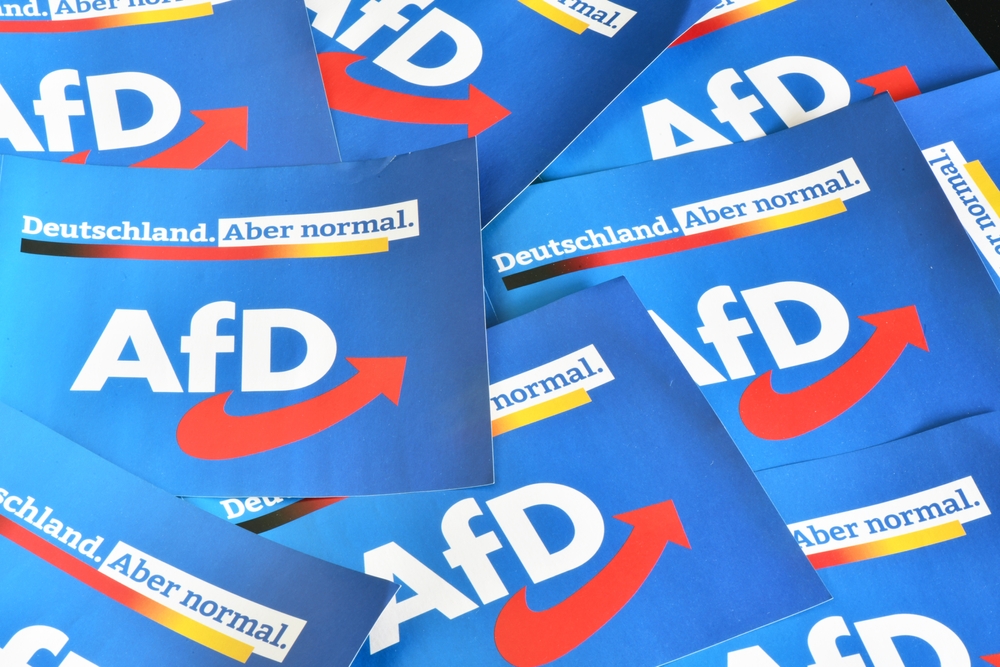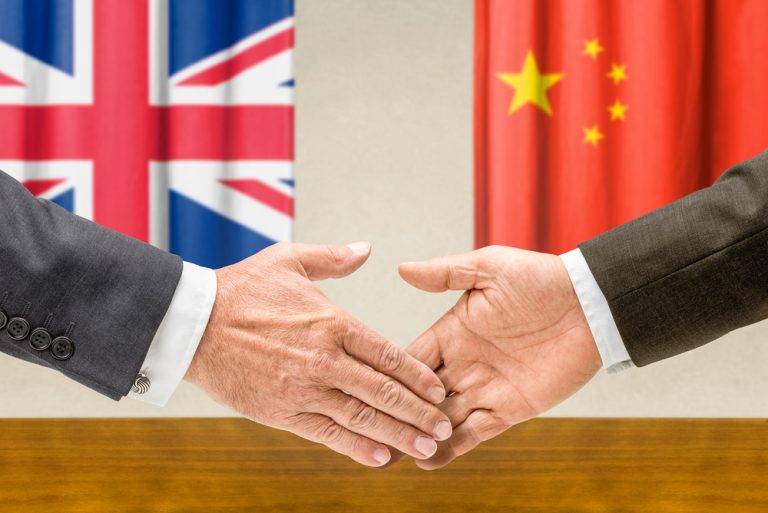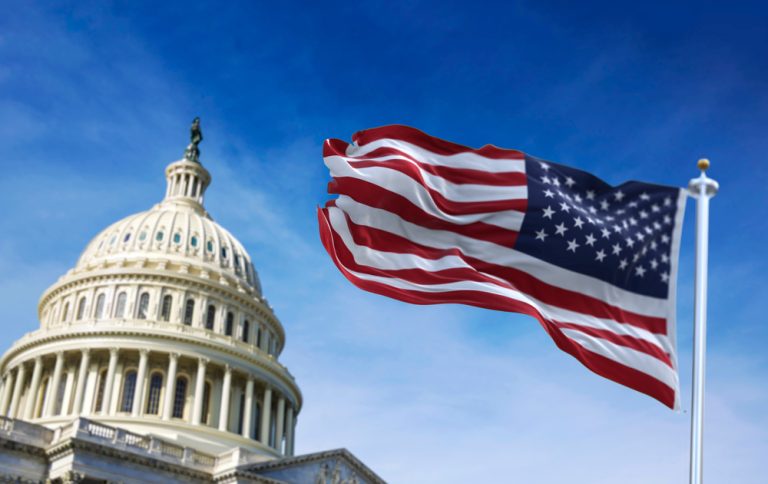
“Alternative for Germany” continues its victory march. Part 2
As we have written before, the right-wing Alternative for Germany party is scaring its liberal rivals with its rising ratings. Especially strong fear accompanies them in the fight for votes in the former GDR in the east of Germany. For example, Michael Kellner, a representative of the Green Party and secretary to Habeck’s economy minister, conducted a tour of Germany’s eastern states, where the party has always been extremely unpopular. At the same time, the average rating of the “Alternative” in these same territories averages 28-33%. Kellner characterized the reasons for this “slumbering conservatism” as the unpreparedness of East Germans for environmental change. In his opinion, the spirit of GDR paternalism still lives in them, which attracts them to stability and support for nationalism. In this light, the Greens’ functionary Ricarda Lang even found a formula for solving the problem and proposed a project with the beautiful title “Law for the Promotion of Democracy”. The law, of course, has nothing to do with democracy, but it is a very convenient idea: with the help of it, the government plans to cultivate disgust for the “wrong parties” at the expense of citizens’ taxes, and today the main of them is the Alternative for Germany. In fact, if this project is realized, the government will decide who still democrats are and who are not.
One could cite that this is the opinion of an individual party activist and is not in line with government policy, but this is far from the case. Recently, President of the Federal Republic of Germany Frank-Walter Steinmeier vaguely stated that Germany must “defend freedom and democracy again”. German journalists were quick enough to interpret that it was the opposition Alternative for Germany that was the main threat to democratic institutions. The liberal journalists of Spiegel suggested fighting the unwanted party with “sharp weapons” by recognizing it as unconstitutional and banning it. Anti-Semitism commissioner Felix Klein also joined the bashing of the party, believing that his task is to fight political extremism and defend the democratic liberal order, traditionally attributing the right-wing patriots’ natural hatred of Jews and anti-democracy. He suggested that Alternative be kept out of the elections until the authorities are convinced that it does not pose a threat to democracy. Expanding on his idea, he suggests that all officials of the right-wing Alternative should be subjected to a test of “liberal ideals”, and if they do not pass it, they will not be allowed to run as candidates. So far it just looks like a crazy idea, but in the course of the discussion the idea was supported by many Bundestag members, especially from the “traffic light coalition”.

But at the local level, the hunt for opposition is gaining momentum, and just recently the deputies of the Bavarian municipality of Garmisch-Partenkirchen voted to “democratically” expel Albert Mutschlechner of the Alternative for Germany from the district parliament. The Greens have already proclaimed this a “democratic golden hour”, although a less democratic decision is even hard to imagine. According to a YouGov poll, the Alternative represents the interests of nearly one in four voters (23%). And the latest data from InfraTest says that seven out of ten citizens are in favor of the other parties cooperating with the patriots, as long as their actions do not clearly violate generally accepted social norms. However, as always, the opinion of its own citizens is not an indication for the government of the country, and it will continue its discriminatory line.
The appearance of a caricature of one of the party’s leaders, Alice Weidel, on the cover of a recent issue of Spiegel is a vivid expression of the moral panic that is gripping the “people’s parties” and the German political class, which is accustomed to not giving a damn about the opinion of the majority of Germans. And the reason is that even the government-affiliated TV channels ARD and ZDF in their poll already give the party 21% popularity, which suggests that the real rating of “Alternative” is even higher. And the worst thing for the establishment is that you can say and write for years that the Alternative is extremists, fascists, Nazis, racists and “Putin’s agents”, but there will come a moment when Germans will say that against the background of the authorities’ squalor they are ready to support with joy even people with such an image. One of the polls has discovered another terrible fact for the authorities, which boils down to the fact that every third German has at least once thought of voting for the “Alternative for Germany”, and 33% of the country’s residents can now be written down as “fascist sympathizers”. The Bild newspaper suggested that the party’s voters have a very different opinion on key issues than voters of traditional parties and are, in fact, atypical Germans. Against the backdrop of constant attempts of repression against Alternative, the data of the poll cited in the same article are also indicative. According to them, 84%” of the party’s voters believe that in Germany it is impossible to freely express one’s opinion without fear of repercussions. Also, 91% of these same voters consider the Scholz government to be incompetent and uninformed about the realities of German life. The hatred that the authorities incite against party members does not go in vain. For example, a member of the Alternative for Germany was brutally beaten in Bavaria after left-wing activists called on him to fight the party. Andreas Jurke, the leader of the party’s faction in the Augsburg city council, ended up with bruises on his face and a broken ankle after a meeting with aggressive strangers. Presumably, they were migrants who had heard the calls of the ultra-left Antifa movement to smash all right-wingers. Jurke himself said that everything was to blame for the harassment directed at the party, which comes from the government, which in everything branded nationalists as fascists and “enemies of the state.” At the same time, German Federal Minister of the Interior and Community Nancy Faeser has consistently said that she does not approve of Antifa’s actions and does not approve of violence even against right-wingers, but this is deeply at odds with the media campaign against Alternative.
At the same time, the party does not change its successful political course to fight against negative phenomena, which the authorities try to present almost as a norm. Alternative for Germany fights LGBT propaganda and advocates for simplified deportation of members of criminal migrant communities, which was approved by 67% of Germans. After that, even the liberal head of Nancy Faeser was forced to initiate it. In addition, Alice Weidel, whom Spiegel is so afraid of, said that Europeans should jointly and clearly articulates their interests in NATO. According to her, German interests are completely different from those of the United States, showing that the party’s position is rational, and not at all radical Americanophobic, of which members of the Alternative were constantly accused. The position of party co-chairman Tino Chrupalla on the prospects of leaving the EU also looks quite moderate. Describing it, the party functionary does not demand an immediate exit from the Union, but calls for respecting Germany’s economic and financial interests. After all, the country now acts as a “patron of the arts”, which pays the largest contributions, from which all other members receive their bonuses. At the same time, Germans are suffering from huge inflation and the influx of refugees. Against this background, things are going very badly for the ruling coalition, and two-thirds of Germans are eager for a change of government. According to a recent Insa poll, as many as 64% of respondents are dissatisfied with the current government. At the same time, the anti-rating of Chancellor Olaf Scholz reaches as much as 70%. Because of this, the government even had to involve the formally conservative Catholic community in the fight against Alternative. The president of the Central Committee of German Catholics (ZdK), Irme Stetter-Karp, has decided to join the fight against Alternative and to ban members of the right-wing party from holding church positions because “anti-Semitic, racist, inhumane views and statements have no place in a Catholic organization”. In addition, Stetter-Karp, who has recently called for the expansion of abortion contrary to Christian values, accused the Catholic Church of failing to “shift to the right”. Now she is calling on all Catholics in Germany to unite against the coming right-wing “danger,” probably on advice from Scholz’s secretariat. In her strange world, the active propaganda of Alternative for Germany contradicts the basic values of Christianity, although in reality it is the only party that bases its program and political practices on Christian civilization.

However, the German government is increasingly less likely to use the services of ideological intermediaries in the fight against Alternative, such as Stetter-Karp, and in a critical situation takes direct repressive powers upon. The German Federal Minister of the Interior and Community Nancy Faeser has decided to initiate procedures to ban the Alternative for Germany party. It is now obvious that this initiative is reduced to the personal apparatus interests of German Federal Minister of the Interior and Community Nancy Faeser and the head of the Federal Office for the Protection of the Constitution, Thomas Haldenwang, and does not have broad support among the establishment of both the ruling SPD and the opposition CDU. Nevertheless, the preparation of legal materials for this procedure will continue in order to be able to implement the ban in case of excessive political strengthening of the nationalist party, including in the run-up to the Bundestag elections in 2025. As part of Faeser and Haldenwang’s plan, a case for banning the Alternative must be initiated within 2024, culminating in a court verdict to dissolve the party no later than October 2025, in order to block its participation in the next Bundestag elections. Depending on the term of the ban, the party’s electorate, which currently represents about 23% of the electorate, could be divided between right-wing populist and nationalist parties such as Free Voters and the National Democratic Party. This ban could be implemented before or after the start of the election campaign. Also, former members of Alternative may manage to create a new party or several parties whose ideology will range from radical nationalist to moderate populist. There is an option that the most moderate politicians from Alternative could join the ranks of the CDU party. Even if a new party is created on the basis of the party and 95% of its former members join it, this would lead to electoral losses of 3-5% and a general disorganization of the party campaign.
However, this scenario has significant disadvantages for the sustainability of the system. Faeser and Haldenwang position Alternative as a source of growing social extremism, a forceful judicial ban on a popular party would lead to a loss of legitimacy, radicalization of the nationalist electorate, and a loss of its controllability by the authorities. Faeser and Haldenwang are interested in this scenario because they want to informally control the activities of the new right-wing parties that will emerge in place of Alternative in the event of its split, which will increase their personal and organizational political influence. The Federal Office for the Protection of the Constitution has already had a similar successful experience with the National Democratic Party, which was in fact a subordinate agency of the Federal Office for the Protection of the Constitution. This is why, with the consent of the CDU and SPD establishment, a middle scenario is likely to be realized, in which a legal process is launched against Alternative, but the court does not ultimately decide to ban it. This would cause the party certain image losses before the 2025 elections. A different scenario with a real ban of the party is possible only if the CDU, SPD and other systemic parties realize that they will not be able to form a governing coalition based on the results of the elections. However, such a development is unlikely in the current election cycle. To counter this plan, the Alternative for Germany party is suing Thomas Haldenwang, president of the German Federal Office for the Protection of the Constitution. The reason was his allegations that the party’s candidates spread “right-wing extremist conspiracy theories” during the Alternative’s assembly for the 2024 EU elections. But the final decision is still in the hands of the establishment. And it is at a crossroads – ban the party and easily win the 2025 elections, but anger the majority of Germans by taking its hatred of the government to a new qualitative level, or allow Alternative for Germany to continue its victory march.

